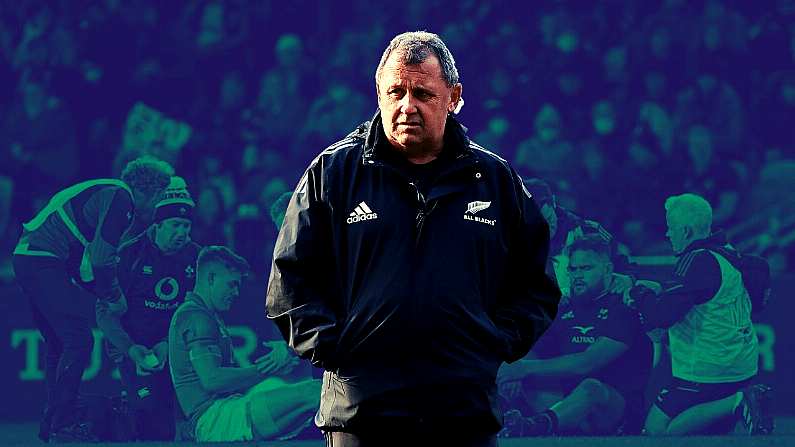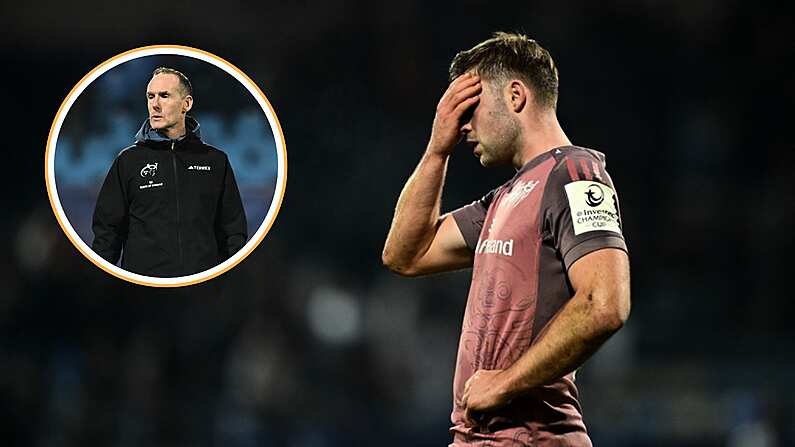Ireland head into Saturday's test against New Zealand hoping to make history. Having already written their name into the record books by earning a first test victory on Kiwi soil last weekend, they will now be aiming to go one better by clinching the series.
That will be no easy task. The All Blacks rarely lose two games on the trot, while they will certainly want to get some form of revenge considering the nature of their defeat last weekend.
Of course, keeping a full compliment of players on the pitch would help.
New Zealand prop Angus Ta'avao was sent off in the first half of the second test after a dangerous hit on Garry Ringrose, with Leicester Fainga'anuku also a tad fortunate to only receive a yellow card for a late hit on Mack Hansen. In total, the hosts have picked up four cards in the two games.
New Zealand are given a RED CARD 🔴
Things are heating up in Dunedin 🔥#NZvsIRE pic.twitter.com/tJZFHBSedV— Sky Sports Rugby Union (@SkySportsRugby) July 9, 2022
Ringrose has been ruled out of this weekend's test due to concussion protocols.
Ian Foster calls for 'debate' on cards in rugby
It has been said over the years that the All Black get plenty of favourable decisions from officials, something that has been the case on this tour regardless of the cards they actually have picked up.
World Rugby have made the decision to attempt to stamp out dangerous tackles in the sport, especially those related to head injuries. However, Eddie Jones and others have been asking if the laws have now gone too far.
Speaking ahead of Saturday's final test, New Zealand head coach Ian Foster said that a 'debate' is needed around the use of red cards in the sport.
It's well documented that they're [red cards] dominating the game.
It's not helping the spectacle. I understand the reasons but it probably needs a decent debate...
It's [the debate is] certainly happening behind the scenes, and it's getting that balance between the player welfare side of it, and that arguments strong. And then you get the fan-centric side of it, and that argument's strong.
And then you get the people who are actually playing the game, who prepare all week to play a game and then suddenly that gets disrupted.
What can we take responsibility for? Well, our technique and discipline, and we've got to be strong on that.
But I think there is a wider discussion about where the game is going and do we want to keep seeing contests that are a little bit lopsided in numbers? I think the answer everyone would say is no to that. I think we've got to find a way.
Regardless of any complaints, it is highly likely that these laws are here to stay. Head injuries have become a major issue in rugby, meaning any steps taken to minimise them in the sport should be welcomed.
It is now down to the players and coaches to adapt to this new environment.














